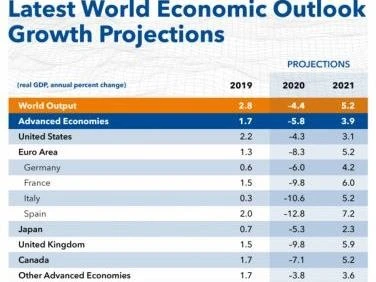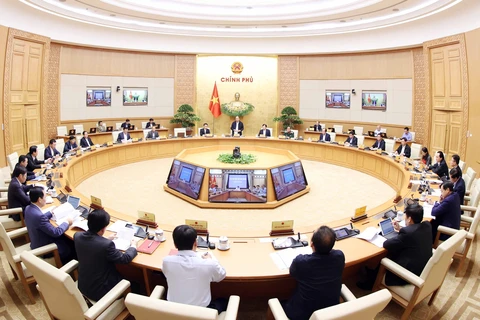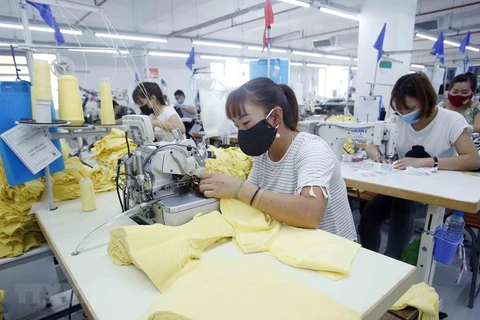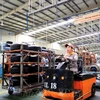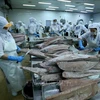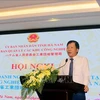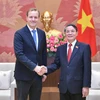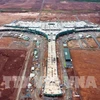Hanoi (VNA) - The State Bank of Vietnam (SBV) in collaboration with the International Monetary Fund (IMF) organised a joint high-level conference, themed “Securing growth and resilience in the ASEAN: Policies for the Post-COVID World” on November 10.
The event aims to boost cooperation among ASEAN countries and between ASEAN and the IMF and other international partners in finding out solutions to promote growth, raise resilience of the economy and take advantages of changes and opportunities brought by the COVID-19 pandemic.
The joint SBV-IMF high-level conference is one of activities held on the sidelines of the 37th ASEAN Summit and related meetings hosted by Vietnam.
Addressing the event, Deputy Prime Minister Pham Binh Minh expressed his belief that the conference will help ASEAN leaders outline policies to bring the region out of crisis and promote resilience, economic recovery and inclusive growth.
In her opening remarks, IMF General Director Kristalina Georgieva said the world has admired the strong spirit of ASEAN cooperation over the years, and during the process of recovering from the COVID-19 crisis, ASEAN will be a source of inspirations to boost global cooperation and building a better world.
Meanwhile, SBV Deputy Governor Nguyen Thi Hong spoke highly of active collaboration between the IMF and ASEAN, stressing that the finance-banking sector plays an important role in propelling growth and improving economic resilience in the region.
Since the pandemic broke out, amidst complex developments of the COVID-19 pandemic, the Vietnamese Government has carried out preventive measures, ensuring the dual goals of fighting the disease to protect people’s health and life and maintaining economic growth.
In addition, the government has implemented drastic measures to support economic activities.
She informed that the State Bank of Vietnam has performed monetary policies synchronously to help the Vietnamese economy overcome difficulties, including offering lending rate reductions and exemptions as well as restructuring debts.
Besides, credit organisations have reduced conversion and credit information fees in order to help cut down lending costs and interest rates.
“The current COVID-19 crisis is clearly the biggest ever challenge for all of us. But from the positive perspective, the crisis also offers enormous opportunities,” said Hong.
According to the SBV deputy governor, from the domestic perspective, although the pandemic still exists, Vietnam continues to maintain its confidence in a stable political environment, and the Government is consistent with the goal of controlling inflation and stabilising macro-economy and creating a foundation for sustainable growth.
In addition, exports are expected to increase strongly and Vietnam continues to be an attractive destination in attracting foreign direct investment (FDI) when the Vietnam - EU Free Trade Agreement (EVFTA) and the Vietnam – EU Investment Protection Agreement (EVIPA) officially come into effect.
“The domestic financial market is predicted to be more balanced, with less dependence on bank credits. Meanwhile, Vietnam's continued improvement on the national credit rankings of international credit rating organisations will be a premise for the country to continue attracting international capital flows,” said Hong.
For the Association of Southeast Asian Nations (ASEAN), Hong said that the COVID-19 crisis is a factor promoting digitisation and the development of the contactless economy. The digitalisation process is taking place in almost areas of the social and economic life, from manufacturing, banking and finance to health care, education, State administrative management, and public service provision. The digital economy along with achievements of the Fourth Industrial Revolution is creating a new driving force for growth, improving productivity and accelerating the modernisation of the economy./.
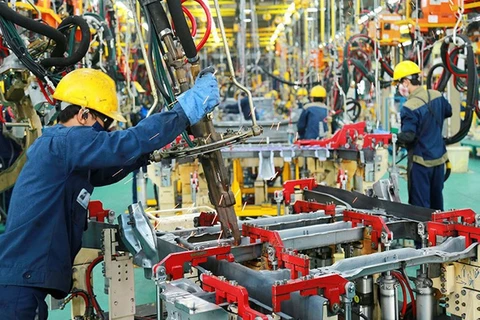
Vietnam may emerge as example for recovery after COVID-19
Vietnam might record high economic growth in the post-pandemic period thanks to the swiftness of structural reforms and trade facilitating measures and emerge as the perfect example for recovery, an Indian scholar has said.

